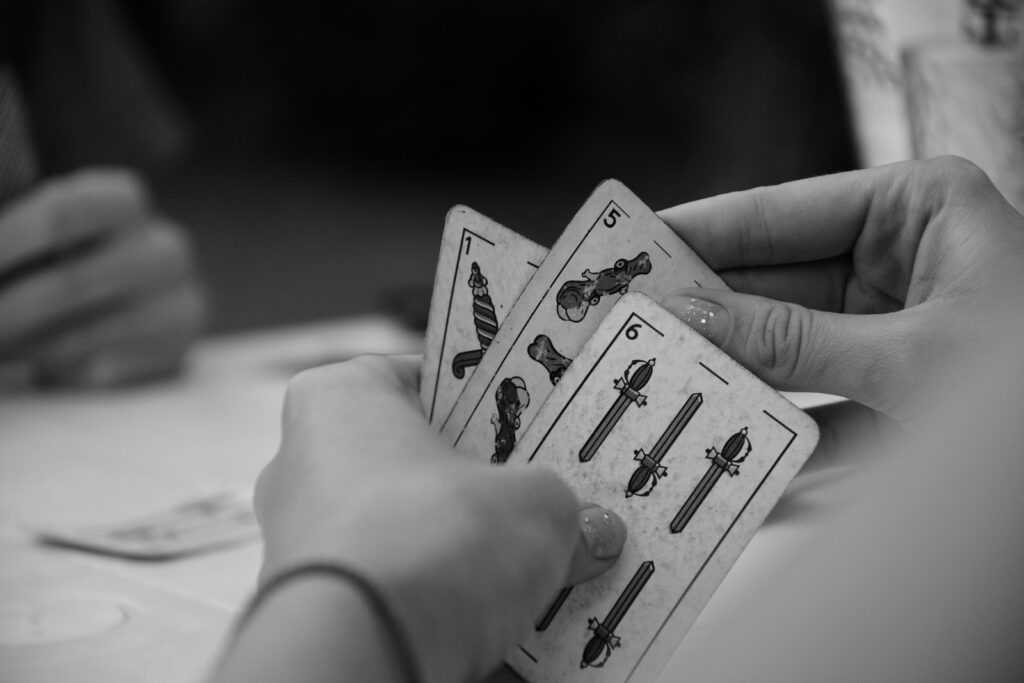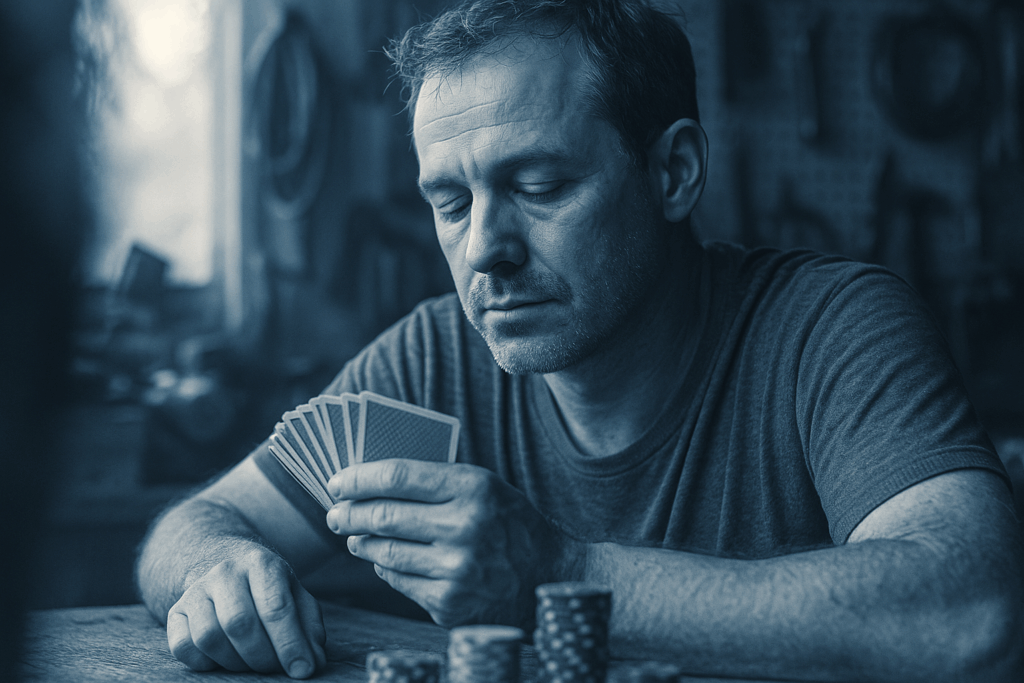Introduction: Why Mindfulness Matters at the Table
What Is Mindful Gambling?
Mindful gambling is the practice of staying present and fully aware while you play. Rather than acting on impulse or chasing outcomes, mindful gamblers tune into their thoughts, emotions, and decisions in real time. It’s a way to create space between action and reaction, helping you make more intentional choices.
Think of it this way: instead of zoning out at the slot machine or betting out of habit, you’re paying attention to your motivations, your limits, and the overall experience.
The Real Benefits of Being Present
Gambling mindfully isn’t just about being cautious—it can actually enhance your overall experience. Players who bring mindfulness to the table report benefits like:
- Sharper focus during gameplay, helping to notice patterns or odds more clearly
- Improved decision-making, especially during high-stakes or emotional moments
- A greater sense of enjoyment, since you’re more engaged with the process rather than fixated on the outcome
Mindfulness vs. Luck
Gambling is often associated with chance, but mindfulness has nothing to do with luck. It’s about clarity—not control.
- You can’t predict the outcome of a game, but you can control how you participate
- Staying grounded helps you avoid emotional spirals and risky behaviors
Being mindful means showing up for yourself—not just your bets. It gives you the tools to enjoy gambling as entertainment, without being swept away by it.
Habit 1: Breathing and Grounding Techniques
Creating a calmer mental space at the gambling table starts with simple awareness—and your breath is your best tool.
Quick Breathing Methods to Reset
A deep breath can do more than you think. By learning to pause and breathe between hands, spins, or rounds, you can reset your mental focus and reduce impulsive decisions.
- Box Breathing: Inhale for 4 counts, hold for 4, exhale for 4, hold for 4. Repeat 3–5 times.
- 3-Second Reset: Take one slow breath in and out while briefly closing your eyes. Use this between plays to stay grounded.
- Alternate Nostril Breathing: Helpful if you’re feeling anxious or overstimulated. Breath control fosters calm and re-centering.
These techniques are discreet, simple, and bring you back into the moment.
Bodily Awareness: Tension Is a Signal
Physical tension is often the first cue that your focus is slipping or your emotions are flaring. Catching it early matters.
- Tension Check: Periodically scan your body—are your shoulders raised? Is your jaw clenched?
- Gentle Adjustments: Roll your neck, stretch your fingers, straighten your spine. Small movements help reset presence.
- Pattern Watch: Notice if tension spikes during big wins or losses. This awareness helps you respond more thoughtfully.
Grounding with Intention
Grounding techniques keep you present and prevent detachment, especially during long gambling sessions.
- Centering Phrases: Try silently repeating statements like “I’m in control,” or “This is a moment, not a sprint.”
- Posture Scan: Sit as if you’re attentive—not slouched or leaned too far forward. Your body posture influences your mental clarity.
- Object Anchoring: Keep a small object (like a coin or ring) as a tactile reminder to stay present. Touch it when you feel scattered.
Grounding is about regaining control in subtle ways. The more you practice, the more natural it becomes.
Habit 2: Setting Intentions Before You Play
Too many people sit down to gamble without knowing why they’re there. That’s a mistake. Whether it’s for fun, to test a strategy, or just to unwind, having a clear reason shapes how you play—and how you stop. Intentions set the tone. They give you boundaries before the first bet is even placed.
Going in with purpose leads to stronger self-control. If your intention is entertainment for an hour, you’re far less likely to spiral into chasing losses or betting beyond reason. If you’re testing a new strategy, then patience and observation become your focus—not the rush. You stay anchored.
Some healthy intentions might look like:
- “I’m here to enjoy the game, not win the rent.”
- “I’ll leave after 90 minutes, win or lose.”
- “I want to practice reading player behavior at the table—cash is secondary.”
Intention-setting isn’t something you do once. It’s something you check in with during the session. These small mental resets can mean the difference between controlled fun and regret.
Once you walk in with direction, you play with clarity. And that’s where mindfulness starts to pay off.
Habit 3: Recognizing Emotional Cues
The rush of a near-win. The sting of a long losing streak. The buzz from doubling down and getting lucky. All of it can yank you out of a calm, focused mindset before you realize it. Stress, excitement, and frustration don’t just change your mood—they cloud your judgment. Under their influence, you start chasing losses, betting impulsively, or ignoring the strategy you walked in with.
The fix? Learn to pause. Before you react—especially after a charged moment—take a breath, feel your feet on the ground, and ask yourself: what am I feeling right now? The act of noticing is often enough to put space between emotion and action. No need to overanalyze—just give yourself a beat before clicking, calling, or raising.
Patterns help, too. Track what triggers your impulsive choices. Maybe it’s boredom after a long session, or ego after a big loss. Either way, seeing it for what it is starts with paying attention. With practice, emotional awareness becomes part of your routine. And that’s when you start making choices on your terms—not your impulses.
Habit 4: Time and Money Awareness
Creating a mindful gambling practice means mastering your attention—not just emotionally, but practically. Time and money can both be invisible lines we cross without noticing. This habit is about bringing those boundary lines back into clear view.
Manage Your Time with Intention
It’s easy to lose track of time in a casino or while playing online, but being intentional with your session length prevents burnout and impulse-driven decisions.
- Use a timer or alarm to signal when to take a break
- Schedule mini-pause moments every 20–30 minutes to check in with yourself
- Consider session caps—decide your end time before you begin
Try This: Commit to one round of deep breathing or a posture reset every time you check the clock or reach a break.
Set—and Honor—Financial Limits
Mindful gambling includes a realistic view of how much you’re willing to spend. Setting limits ahead of time makes decision-making easier in the moment.
- Choose a fixed bankroll before you start playing
- Leave cards or banking info out of reach to avoid mid-session reloading
- Use budgeting tools or apps if playing digitally to track balance in real-time
Pro Tip: View your gambling spend as part of your entertainment budget—not as a money-making strategy.
Know When to Walk Away
Ending a session doesn’t have to feel like failure. In fact, knowing when to stop—win or lose—is a key sign of mindful control.
- Set emotional check-ins: “Am I still enjoying this? Am I chasing losses?”
- Accept that taking a break or calling it quits is strength, not weakness
- Have a post-play ritual (grab a snack, take a walk, journal quick insights) to signal closure
Mindful gamblers walk away with clarity and peace—not regret.
Applying Mindfulness Across Game Types
Gambling isn’t one-size-fits-all, and neither is staying mindful. Each game brings its own kind of mental tug-of-war, especially when it comes to staying present and grounded.
Start with slot machines. They’re repetitive, fast, and designed to blur time. You’re not making high-stakes decisions on every spin, which makes it easier to mentally check out. One strategy? Before pressing spin, take a breath and mentally note your surroundings. Ask yourself why you’re spinning—boredom, excitement, or just because it’s there? That pause builds awareness.
Sports betting is different. It’s slower but full of emotional traps—confidence, stress, impulsive plays just before a game’s kickoff. The mindful move here is sticking to your bets and routines. Don’t let shifting odds or a last-second gut feeling throw you off. Check in with your actual plan, not just the scoreboard.
Online gambling requires special attention. The dissociation factor is real—you’re isolated, often in a comfort zone, and the lack of physical cues makes it easy to over-immerse. Work in reset habits. Play with the lights on, sit at a desk, avoid autoplay, and give yourself clear end-times. Step away, physically, every 30 minutes or so.
In a real-world casino, the geography alone helps you reset. Look for natural breakpoints: a lap around the floor, a trip outside, even just switching machines or tables. Every interrupt gives your brain a reset signal and restores perspective. The key takeaway: if the action feels automatic, pump the brakes. Bringing yourself physically and mentally back into the room is where mindfulness starts.
The Long-Term Payoff of Mindful Gambling
Mindfulness isn’t just about staying calm in the moment—it pays real dividends over time. Committing to mindful behaviors at the table can help transform gambling from a reactive habit into a balanced, intentional experience.
Improved Decision Recall
When you’re mentally present during your sessions, you’re more likely to remember:
- Why you made certain bets
- What strategies succeeded (or failed)
- How specific emotions influenced outcomes
This awareness creates a feedback loop. By recalling what worked and what didn’t, you can refine your approach and become a more thoughtful player.
Stronger Self-Discipline
Self-discipline grows stronger every time you:
- Pause before acting on impulse
- Respect your preset budget or time limit
- Notice emotional buildup before it affects your play
Rather than reacting to wins and losses, mindful gamblers respond with clarity and consistency. That control is a long-term asset—not just at the table but in everyday life.
Gambling as Sustainable Leisure
When approached with mindfulness, gambling becomes less of a high-stakes endeavor and more of an enjoyable pastime:
- You set clear boundaries without relying on willpower alone
- You gain more satisfaction from the experience, regardless of the outcome
- You avoid burnout, regret, and the cycle of chasing losses
Mindful gambling allows you to play with purpose—transforming it into a sustainable, conscious hobby that enhances, rather than compromises, your well-being.
Bonus Insight: Traveling? Keep It Balanced
When you’re exploring new places, gambling can be a fun and exciting part of the journey. But without mindful habits, it’s easy for vacation gaming to turn into overindulgence. Staying grounded while away from your usual routine helps you enjoy the experience without regret.
Stay Present While Abroad
Travel changes your environment—and often, your mindset. New casinos, unfamiliar rules, and cultural differences can make it easier to disconnect from your normal limits. To stay mindful:
- Set clear time and spending limits before you play
- Be aware of the influence of vacation moods (excitement, jet lag, impulsivity)
- Take short breaks to check in with how you’re feeling, both emotionally and physically
Blend Entertainment with Exploration
Let gambling be part of your vacation—not the entire itinerary. A balanced approach leads to more satisfaction and less guilt later.
- Prioritize experiences: food, sights, and non-gambling activities
- Schedule gaming sessions like any other event in your travel plans
- Reflect on what you’re enjoying most—sometimes the best moments happen outside the casino
Know When to Pause
It’s easy to lose track of time when you’re in an exciting new place. Mindfulness can act as a compass:
- Check in with your body and energy levels regularly
- Use travel alarms or apps to keep sessions in check
- Focus on quality over quantity when it comes to playtime
More to Explore: If you’re planning a trip that includes gambling, check out our full guide: Travel Tips for Gamblers: Combining Leisure and Entertainment
Final Thoughts
Mindful gambling isn’t about mastering every hand or walking away a winner every time. It’s not about being perfect—it’s about staying present. You’ll get distracted. You’ll chase a loss now and then. What matters is catching yourself, course-correcting, and learning from the moment.
The real power is in the small, repeatable choices: setting a timer, checking your breath, noticing when you’re playing on autopilot. These habits add up. Over time, they build sharper awareness, better boundaries, and a stronger connection to the experience itself—not just the outcome.
Play with your eyes open. Keep your mind clear. When gambling is approached with presence, it can stay enjoyable, balanced, and well within your control.


 Nealsuner Williams contributes to GambleFitnessSplash with articles that dive into fitness, gaming, and modern tech. With a passion for exploring how innovation impacts daily routines, Nealsuner helps readers discover smarter ways to integrate wellness and responsible play.
Nealsuner Williams contributes to GambleFitnessSplash with articles that dive into fitness, gaming, and modern tech. With a passion for exploring how innovation impacts daily routines, Nealsuner helps readers discover smarter ways to integrate wellness and responsible play.

